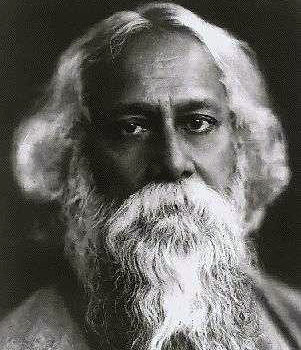
 May 7, 2009 marks the 148th birth anniversary of Rabindranath Tagore.
May 7, 2009 marks the 148th birth anniversary of Rabindranath Tagore.Tagore continues to be as popular today as he was in his own time. The reason perhaps is very simple. The man was far ahead of his times. His portrayal of women is encouraging, to say the least.
His depiction of his cultural and social milieu not only talked about the existing problems but offered practical solutions to them. He was a modern man.
Rabindranath Tagore is known fondly by the sobriquet Gurudev. He was a poet, visual artist, playwright, novelist, educationist, social reformer, nationalist, business-manager and composer whose works reshaped Bengali literature and music in the late 19th and early 20th centuries. He became Asia’s first Nobel laureate when he won the 1913 Nobel Prize in Literature.
Tagore was a precocious child as he wrote poems first at the age of eight. At sixteen, he published his first substantial poetry under the pseudonym Bhanushingho (“Sun Lion”) and wrote his first short stories and dramas in 1877.
In his youth he protested strongly against the British and gave his support to the Indian Independence Movement. Tagore’s life work endures, in the form of his poetry and the institution he founded – Visva-Bharati University.
Gitanjali (Song Offerings), Gora (Fair-Faced), and Ghare-Baire (The Home and the World) are some of his best-known works.
Tagore was also a cultural reformer who modernised Bengali art by rejecting strictures binding it to classical Indian forms. Two songs from his canon are now the national anthems of Bangladesh and India: the Amar Shonar Bangla and the Jana Gana Mana respectively.

Be the first to comment